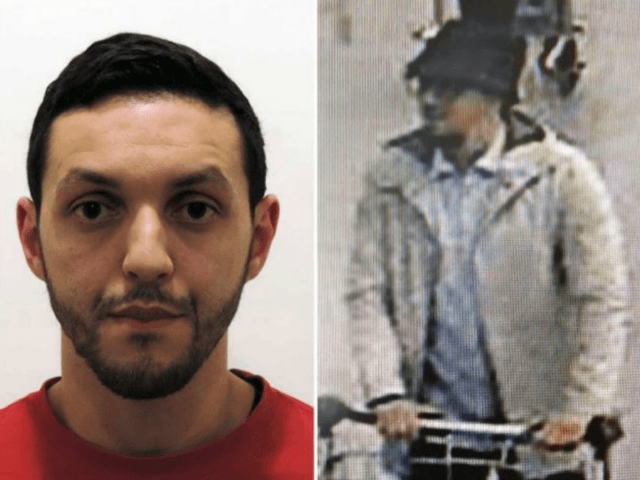A leading Brexit campaigner has exposed a European Union (EU) ruling which forces Britain to disclose top secret intelligence to terror suspects, or let them enter the UK without hindrance.
Tory Member of Parliament, Dominic Raab, revealed the EU rules which are confirmed in court reports. His experience as a former international lawyer who now serves as a junior minister at the Ministry of Justice lends credibility to his claim relating to terror suspects which he told the Daily Mail shows “the lunacy of the EU’s rules on free movement.”
In an article for the newspaper he referred to a terrorism trial being heard at the Old Bailey which links two Birmingham-based individuals to Mohamed Abrini (pictured above). He is said to have confessed to being the ‘man in the hat’ seen accompanying the two suicide bombers who attacked Brussels airport in late March, and has also been investigated in connection with last November’s Paris attacks.
Mr. Raab noted that despite Mr. Abrini’s previous convictions for robbery and violence, he still managed to visit the UK three times in 2015 because “Brussels dictates that the UK can’t bar EU nationals entering, unless they present a serious, credible and present danger to national security.”
Previous convictions, including for robbery and violence, are not alone sufficient to block EU nationals suspected of fanaticism like Mr. Abrini. Nor even are murder convictions. In contast, Mr. Raab writes:
If the Home Office wants to deny entry to an individual coming from outside the EU, on grounds that their presence is not conducive to the public good, it has wide discretion. Scientologists were banned until 1980 for propagating a cult, while American rappers and radio presenters have been denied entry for offensive language.
He refers to the fact that alerts on the EU’s own Schengen Information System and even intelligence reports flagging concerning behaviour fail to justify a temporary ban.
Even when the Home Secretary can justify refusing entry to the UK to a suspected terrorist or extremist with an EU passport, the reasoning behind it must be revealed. Mr. Raab explained:
Even if UK authorities can justify barring someone as dangerous, the European Court of Justice [ECJ] demands we tell them why – even if that endangers national security.
The ECJ case involved a man of joint French-Algerian nationality ruled by a British court to be a member of the Armed Islamic Group who was involved in terrorist activities in the 1990s.
The Court of Appeal of England and Wales agreed that the ECJ decision — based on Article 47 of the Charter of Fundamental Rights of the European Union — that individuals “must be informed, in any event, of the essence of the grounds on which a decision” is taken, “cannot yield to the demands of national security.”
The information that would have to be shared even extends to paper files, risking revealing secret operations and other covert activities. This means that in practice security officials are sometimes left to conclude that allowing people into Britain in spite of valid security concerns is the preferred option.
As a result of what he refers to as “these perverse EU rules” the UK has turned back only 11,000 travelers from the EU since 2006, compared to the 201,000 blocked from coming in from outside the EU. Mr. Raab also identifies knock-on effects for government expenditure, writing:
The consequence of weak border controls with the EU is to expand the pool of those with criminal or terrorist links that the police and intelligence services have to monitor, imposing huge strains on their resources, and magnifying the risk that dangerous people are slipping through the border.
Mr. Raab does credit David Cameron with recognising this risk, noting that in his EU negotiations he set out the need for “stronger powers to deport criminals … as well as preventing entry in the first place”, but also recognises that such efforts were pointless as “the EU regards free movement as sacrosanct, and stubbornly refused to budge.”
Summing up his case, Mr. Raab concluded that the rules in question leave Britain “exposed to unacceptable levels of risk” making re-establishing proper border controls the “strongest security reason for withdrawing from the EU.”
He told the Daily Mail that following a vote to leave the EU, the Government will end the application of the Charter of Fundamental Rights, thus removing the need to tell terror suspects why they are blocked from entering the UK. He also pledged to align rules on turning away EU criminals with those governing travelers from outside the politico-trading bloc.

COMMENTS
Please let us know if you're having issues with commenting.